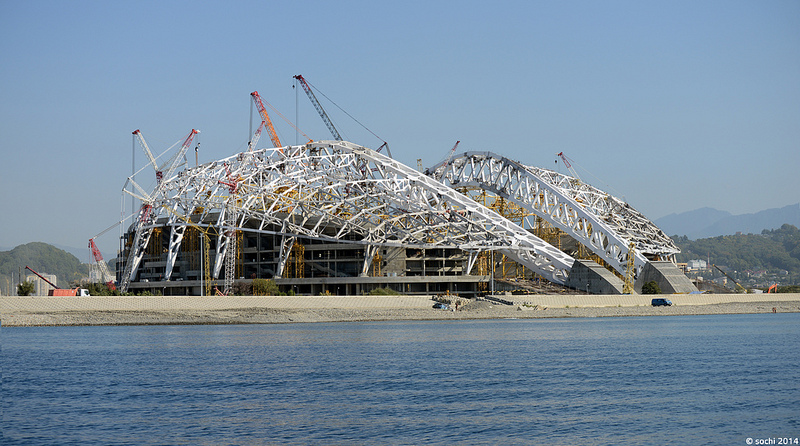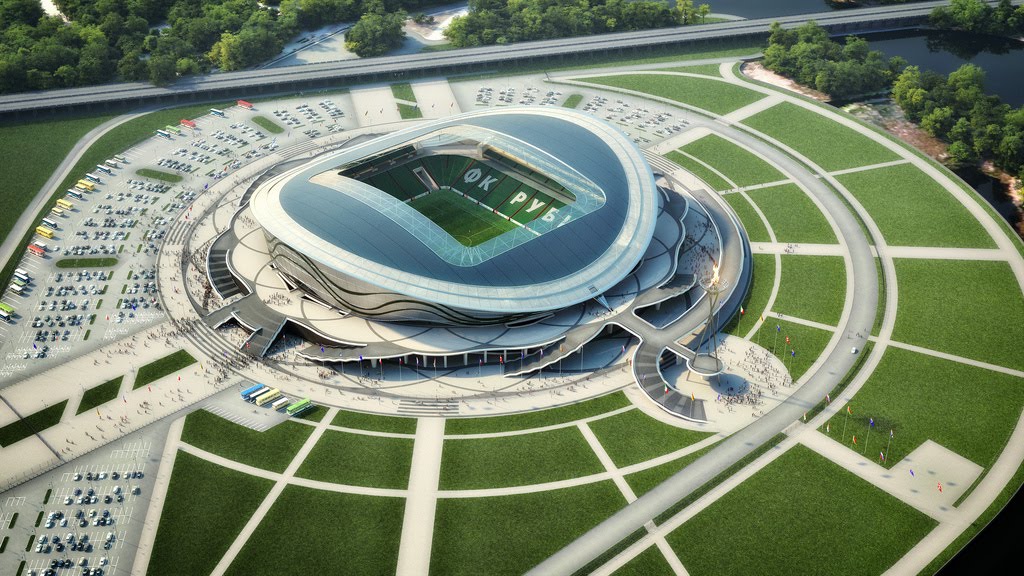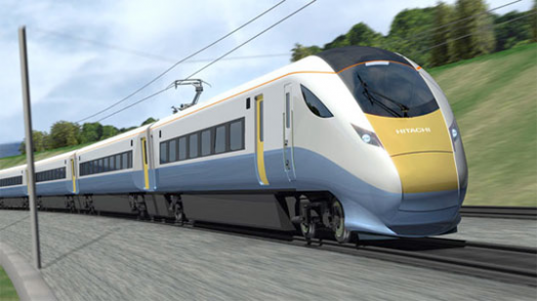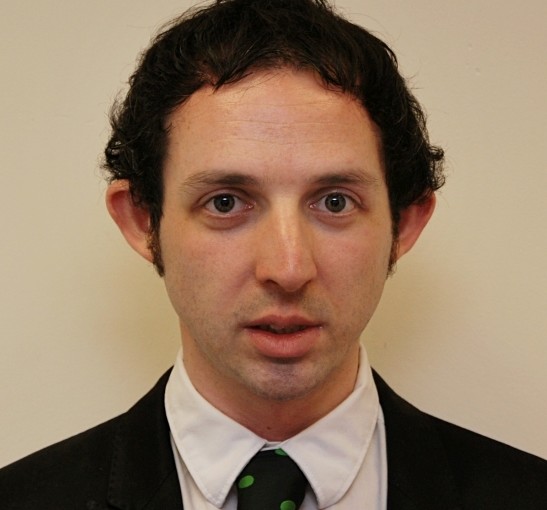It may still be six years away, but the first major milestone of the Russia 2018 World Cup was reached this weekend as FIFA announced the 11 cities and 12 stadiums that will host matches at the tournament. The world knew that Moscow, St Petersburg, Sochi, Kazan, Nizhny Novgorod, Yekaterinburg and Saransk would be staging games. The news of note was that they would be joined by Kaliningrad, Samara, Rostov-on-Don and Volgograd. Yaroslavl missed out, as did Krasnodar, the latter probably due to its comparatively weak transport network, which FIFA had noted in 2010 compared unfavourably with the other prospective host cities.
Speaking at the announcement on what was his first official visit to Russia on business relating to the World Cup, FIFA President Sepp Blatter took the opportunity to praise the country’s preparations so far.
“We’re pleased with the speed of preparations for the tournament which the Russia 2018 organising committee has delivered,” he said. “These sorts of achievements exemplify their enthusiasm and their responsible approach to the matter in hand.”
It is hard not to see Blatter’s comments through the prism of headaches caused by Brazil 2014, which has delayed and prevaricated, despite effectively knowing it would be hosting that tournament eight years’ ago. Only this year, surely not coincidentally following the departure of the tarnished Ricardo Teixeira as the head of both the Brazilian Football Confederation (CBF) and Brazil 2014 (after being increasingly shunned by Blatter and Brazilian President Dilma Rousseff), have Brazil seemed to be making solid progress at last.
So for Russia, it has not exactly been the most taxing task following in Brazil’s footsteps. FIFA may be pleased with the speed at which things are going, but surely they would be pleased with any speed after their dealings with Brazil 2014.

That said, there is plenty of real progress of which FIFA must be pleased with in Russia already. The announcement of the host cities was brought forward a year by Russia 2018 to help focus and speed up their work. The World Cup law is set to be passed within the next three months. By contrast, Brazil’s World Cup law was only passed a few months ago. Work on many stadiums is well underway. In Sochi, host of the Winter Olympics and Paralympics, the Fisht Stadium (pictured above) which will stage the Opening and Closing Ceremonies of that tournament is close to completion. It will play host to games in 2018, as will Rubin’s new stadium in Kazan, the centrepiece for next year’s Summer Universiade. Work may be heavily delayed on the new stadium in St Petersburg for reigning back to back Russian champions Zenit, but it is still scheduled for completion well ahead of 2018.
Nevertheless, there is still huge work to be done in a country which remains very Moscow centric. Airports in most cities have to either be upgraded or have temporary structures installed to cope with the traffic that will be received during the World Cup. As well as every single stadium either being built from scratch or renovated, most cities require extensive infrastructural work. But Russia certainly does not lack the money, political will or organisation required to meet these challenging goals. And places like Sochi and Kazan (pictured below) are well on the way to completing those upgrades years ahead of the World Cup.
But the one big question which, two years after the award of the tournament to Russia, has still to be answered, is over transport. How exactly will Russia move the hundreds of thousands of expected tourists, officials and media around their country during the tournament in six years’ time? This is the largest country on earth, and in spite of the fact that the World Cup is being played in the European side of Russia, it is still a vast area. Kaliningrad, situated in the far west and geographically separate from the rest of Russia between Lithuania and Poland, is so far away from Yekaterinburg, the furthest city east at the foot of the Ural mountains, that it would take two days to travel there by car. In the south, Sochi is even further from Kaliningrad. Except there are no direct flights between the two cities, making the minimum journey time approximately six hours by plane.

The way things are developing, Russia is going to be reliant on air travel. Only a handful of journeys between host cities will take less than a few hours by train at best. Although Russia is using four clusters of cities so that teams will play in three relatively closely situated host venues, there will be many needing to make journeys across the country throughout the tournament. And anyone going to Yekaterinburg will have a length journey to any other host city unless travelling by air – that is if where they are travelling from has a direct connection.
And located deep in FIFA’s evaluation of Russia’s World Cup bid back in 2010, which is the one area that stands out alone, the sole “high risk” among the predominantly low risk categories for assessment? Airports and international connections. It is the one similarity with Brazil that FIFA will be fearing, the Achilles heel of air transport for two tournaments in a row.
The issue would not be quite such a concern were Russia expanding the high speed rail network (pictured below) it proposed for 2018, but that is currently up in the air. The Russian Federal Government was recently revealed to have not included spending plans for the rail network in their budget projections for the next three years. Russian Railways has confirmed it has received no official response to its calculations for the network, and has questioned how else Russia plans to ferry around large numbers of people.
It is a pertinent question that, two years on, still lacks a convincing answer. For all of the good about Russia’s bid and the work done so far, this is a weak area that still requires a solution. Travel by train will take a day alone between Moscow and Yekaterinburg, so fans could be left commuting for whole days or more at worst if they opt not to travel by plane. This is not the image Russia wants to portray, it is meant to be presenting itself as a new, modern and vibrant country, far removed from the days of the Cold War.

But if everyone then decides to fly, then how will Russia cope? Many host cities lack international connections. There are also few airports with the current capacity to deal with the huge numbers of people expected in 2018, and many will still struggle after upgrades according to FIFA’s 2010 evaluation, while many airlines will have to modernise substantially in the years to come. To put it into perspective, last year you would have been more likely to die in a plane crash if you took a flight in Russia than in any other country worldwide. That may not tell the whole story – statistics never give a full picture – and the Russian Government, far from ignoring the problem, has taken action to improve the situation, but it still reflects a weakness in an area Russia will be reliant on in 2018.
The world is now watching, with so many major sports events coming to the country in the years ahead. The World Cup is the last of those, and the biggest. In its preparations, Russia has made a good start, but there is plenty left to do, and for all its organisation and diligence, there is still a crucial conundrum yet to be solved.
David Gold is a reporter for insideworldfootball

